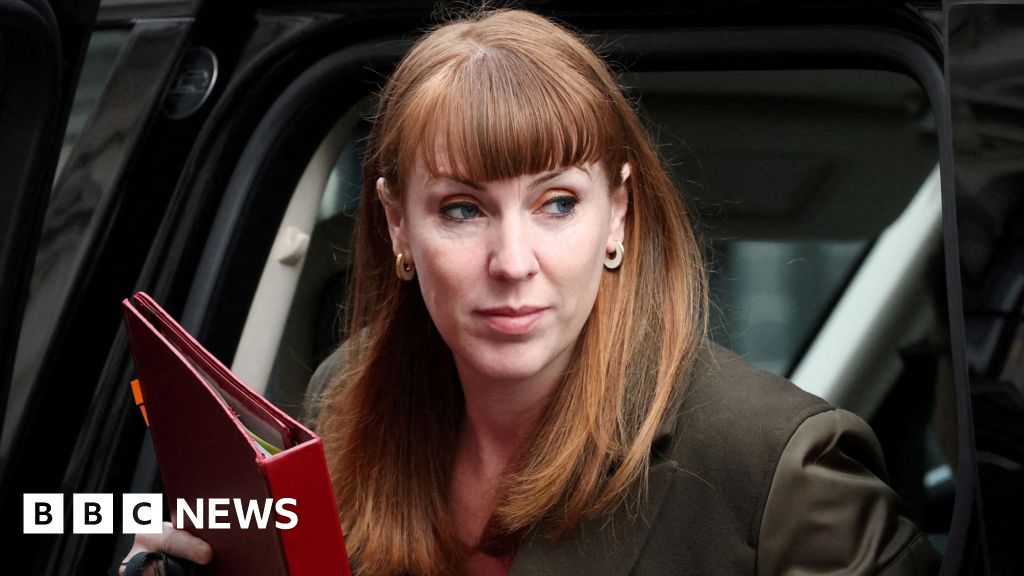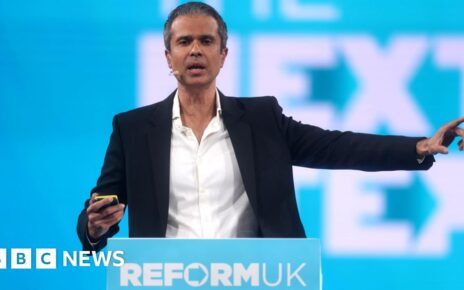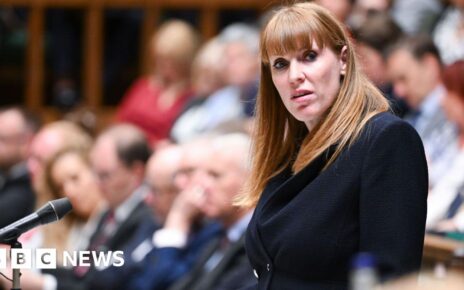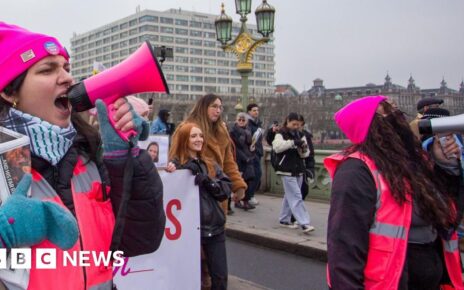Sam FrancisPolitical reporter
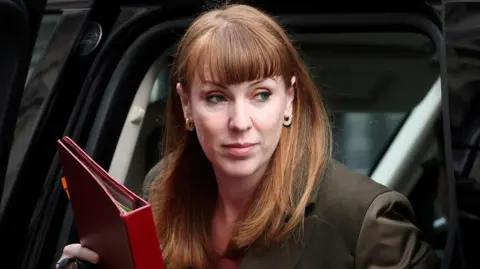 Reuters
ReutersLabour’s ruling body is due to meet to draw up plans for a deputy leadership election to replace Angela Rayner, who resigned last week after admitting to underpaying stamp duty.
The party’s ruling National Executive Committee (NEC) will hold talks on Monday to set the timetable and rules for the contest, which is shaping up to be a major battle over the direction the Labour party takes.
Rayner’s resignation led to a major government reshuffle over the weekend, as Sir Keir Starmer reshaped his top team.
In previous deputy leadership elections, Labour members, unions and MPs have had a say in the outcome but the NEC may decide to revisit the rules in an effort to speed up the contest.
Foreign Affairs Committee chairwoman Dame Emily Thornberry became the first high-profile figure to announce she was thinking about a bid on Sunday.
Dame Emily was a shock omission from Sir Keir’s government, having been his shadow international trade secretary in opposition.
Speaking at the weekend, Labour’s Mayor of Greater Manchester, Andy Burnham said the contest was an opportunity to have a “discussion about the internal management”.
Burnham warned the Cabinet lacked “balance” after Rayner’s exit, and called for another voice from the north of England as deputy.
He suggested former transport secretary Louise Haigh or ex-Commons leader Lucy Powell would help to counter what he called the “London-centricity” under Sir Keir’s leadership.
The contest was triggered by Rayner’s resignation following an investigation which found she had breached the ministerial code after admitting she had underpaid £40,000 in stamp duty on a new home earlier this year.
Her resignation sparked a major reshuffle, which saw Rayner replaced by David Lammy as deputy prime minister and Steve Reed at the housing department – as Sir Keir sought to draw a line under the scandal.
The shake-up saw Yvette Cooper become foreign secretary and Shabana Mahmood replace her as home secretary.
With Rachel Reeves remaining as chancellor, this is the first time the UK has had three women in the most senior cabinet roles alongside the prime minister.
Sir Keir now faces the prospect of a party conference overshadowed by manoeuvring for the deputy leadership role vacated by Rayner, who was popular among the grassroots.
Rayner, who was seen as a bridge between government and the backbenches, was both deputy Labour leader and deputy prime minister.


